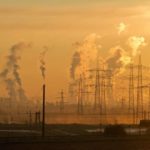 A new study from Cambridge Judge Business School warns that global GDP per capita could drop by up to 24% by 2100 if high greenhouse gas emissions continue unchecked, as projected by the Intergovernmental Panel on Climate Change (IPCC). The study emphasizes the need for significant efforts in both mitigation and adaptation.
A new study from Cambridge Judge Business School warns that global GDP per capita could drop by up to 24% by 2100 if high greenhouse gas emissions continue unchecked, as projected by the Intergovernmental Panel on Climate Change (IPCC). The study emphasizes the need for significant efforts in both mitigation and adaptation.
The economic impact of climate change will vary across the 174 countries studied, but even rich, cold-weather nations will face GDP declines.
Economic impact
This research builds on earlier studies about the macroeconomic effects of climate change. Uncontrolled global warming could slow long-term economic growth by reducing labor productivity due to worse physical and mental health, increasing death and disease rates, damaging infrastructure, and lowering the efficiency of production. Sectors such as agriculture, retail, and manufacturing could all suffer major setbacks.
Adaptation measures like building climate-resilient infrastructure, improving disaster risk management, and using drought-resistant crops can help reduce income losses. However, significant emission reductions are crucial to addressing the broader impacts on long-term growth, especially in major polluting countries.
“We calculated annual per-capita GDP losses for each country under various IPCC climate scenarios, considering different levels of mitigation and adaptation,” the researchers explain. “No country will escape the economic impact of climate change unless we significantly cut greenhouse gas emissions.”
Greatest losses
Countries with hotter climates and lower incomes are likely to face the greatest losses, but colder, wealthier nations are also at risk. The study’s estimates are conservative and do not fully account for additional damages such as food insecurity, conflict, and critical ecological tipping points.
For example, under a high-emissions scenario with minimal adaptation, the US, UK, France, South Africa, and Vietnam could see income declines of about 24%, 13%, 16%, 27%, and 20%, respectively. Stronger adaptation efforts can reduce these losses but not eliminate them entirely. Meeting the Paris Agreement’s temperature goals can nearly prevent these economic damages.
The authors stress the urgent need for effective climate policies to mitigate and adapt to climate change, highlighting that proactive measures are essential to minimize future economic harm.